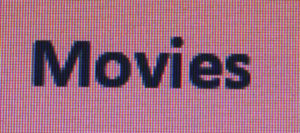
SAN DIEGO — More than likely you have heard the expression, “walk a mile in my shoes,” to caution against prejudging what anyone’s life is like. Jewish filmmaker Nancy Cooperstein Charney poignantly brought that message home at the conclusion of her documentary, Who’s Next?, when she filmed a large group of women, presumably non-Muslims, being shown how to put on a hijab, and then marching together in New York City. I’m not sure, given the Islamophobic atmosphere in the United States today, how many other women would have the courage to do that.
Yet, that was the point of the documentary. Muslims who dress like Muslims, or simply are recognizable as Muslims, face popular prejudice on a daily basis, much of it in Charney’s view, directly attributable to the anti-immigrant, anti-Muslim rhetoric from President Donald Trump and his White House.
Against a backdrop of anti-Muslim rallies, news conferences, picket signs, and newspaper columns and headlines, Charney introduces viewers to a number of Muslim families in several boroughs of New York City, so we can see how much like “ordinary” Americans they are, except for the constant harassment they must face.
We see one New Yorker who travels back and forth to the Caribbean nation of Trinidad and Tobago, where his wife and two children must remain because the wife has been excluded by the United States for a reason unknown to her or her husband. So, he travels periodically to Trinidad and Tobago to see them, and whenever he flies, he is subject to intense questioning, searches, and other humiliations. He was born in Indiana to a Palestinian father, and during his childhood he went to camp in the Palestinian areas to learn Arabic. His wife is the daughter of a imam in Trinidad.
Another family interviewed includes a former Catholic American who converted to Islam after deciding to marry her Mauritanian husband, whom she met while serving in the Peace Corps. It took her a while to wear a hijab, but eventually she decided to don it “to walk the walk.”
A Pakistani family living in Brooklyn came to the United States when their son was still a toddler, needing heart surgery so complicated that it could not be performed in Pakistan. After the surgery, it was learned the child had a rare form of heart disease that requires constant follow-up treatment. Every year, the family goes to a federal building in New York City to renew the visa it was granted on humanitarian grounds. Now, however, with anti-immigrant fever seemingly at a very high pitch, the family is not at all certain it will be permitted to remain in this country, even though they have paid taxes and been good citizens for nearly two decades.
We meet the family of another Pakistani who opened a grocery shop, and extended credit to the people in his neighborhood. He also served as a quasi employment agency, telling people who were looking for work, where in the neighborhood they might find jobs. But then came the terrorist attacks of September 11, 2001, and his son’s vision of some day taking over the family business changed. He became an advocate for fellow Muslims, teaching people about the religion he grew up in, a religion which much like Judaism says if you hurt one human being, you hurt all mankind, and conversely if you help one human being you help mankind.
From such families, we hear stories of their children about having their hijabs ripped off at school, being called terrorists, being told to go back to the country they came from — even though they were born in the United States.
Islamophobia is not universal; the documentary shows rallies in which Jews and Christians stand up for their Muslim neighbors, and call for their rights to be protected. I am proud and relieved to say that when Jews were mentioned in the video, the references were kind ones. Said one interviewee: “I don’t anyone else to suffer what we have suffered, what Jewish people have suffered, Japanese people have suffered , Black people have suffered…”
A stand-up comic, responding to television portrayals of Muslims and her own fellow Palestinians as terrorists and extremists, says she tells her child, “Yes, this is the narrative on TV, but we are not like that.”
*
Donald H. Harrison is editor of San Diego Jewish World. He may be contacted via donald.harrison@sdjewishworld.com
